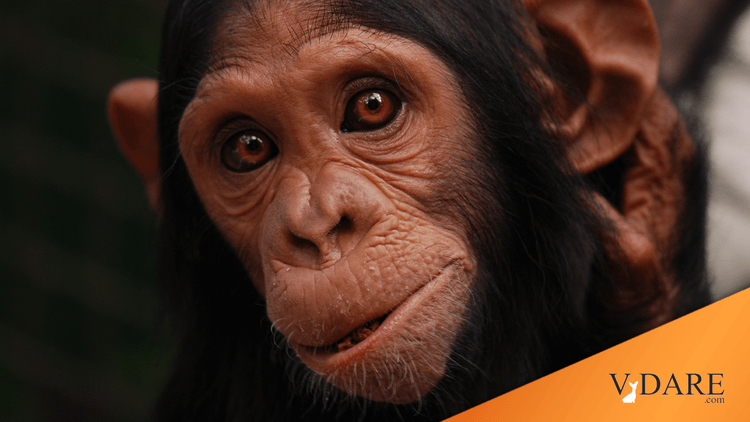
The "2001: A Space Odyssey" theory of human evolution
03/14/2011
Nicholas Wade writes in the NYT in "The Supremacy of a Social Network:"
It was a tool, in the form of a weapon, that made human society possible, in Dr. Chapais’s view. Among chimps, alpha males are physically dominant and can overpower any rival. But weapons are great equalizers. As soon as all males were armed, the cost of monopolizing a large number of females became a lot higher. In the incipient hominid society, females became allocated to males more equally. General polygyny became the rule, then general monogamy.
But did it take a black monolith suddenly appearing among the apes to give them the crucial idea of hitting each other with weapons? Did it help if Thus Spake Zarathustra was playing in the background?
More seriously, I’m a little vague on what constitutes a weapon. If you and I are chimps, and I pick up a heavy rock and hit you with it, is that not a weapon? Do I have to chip a sharp edge onto the rock to make it a hand axe weapon?
This trend led to the emergence of a critical change in sexual behavior: the replacement of the apes' orgiastic promiscuity with the pair bond between male and female. With only one mate, for the most part, a male had an incentive to guard her from other males to protect his paternity.On the social level, the presence of both parents revealed the genealogical structure of the family, which is at least half hidden in chimp societies. A chimp knows who its mother and siblings are, because it grows up with them, but not its father or father’s relatives. So the neighboring bands to which female chimps disperse at puberty, avoiding incest, are perceived as full of strange males and treated with unremitting hostility. In the incipient hominid line, males could recognize their sisters and daughters in neighboring bands. They could also figure out that the daughter’s or sister’s mate shared a common genetic interest in the welfare of the woman’s children. The neighboring males were no longer foes to be killed in sight — they were the in-laws.
The presence of female relatives in neighboring bands became for the first time a bridge between them. It also created a new and more complex social structure. The bands who exchanged women with each other learned to cooperate, forming a group or tribe that would protect its territory from other tribes. Though cooperation became the norm within a tribe, tribes would wage warfare just as relentlessly as chimpanzee bands.
I think there is room to merge the theories that the evolution of cooperation among humans happened via kin selection versus via long-term reciprocation. Both were helped by increased intelligence. In turn, both selected for more increases in intelligence. Something that is frequently forgotten is how complicated knowledge of blood and marriage relationships can be.
Say I get smart enough to realize that my mate’s brother (i.e., my brother-in-law) is the uncle of my child. Thus, has a nepotistic interest in aiding the welfare of my child. Therefore, he might make a more trustworthy hunting partner for me. Moreover, he has a brother-in-law, too, so maybe the three of us would make a good team that wouldn’t be as likely to fight amongst ourselves over splitting up the catch or to turn on each other or abandon each other in a tough spot. And if I’m smart enough to recognize something like that, maybe I’m smart enough to remember that this fourth fellow who isn’t, as far as we can tell, related to any of us seems to have a track record of being a good guy, so maybe the three of us should bring him along on our hunts. And if he does prove a good guy on the hunts, maybe I'll let him hang around the campfire with my younger sister who doesn’t have a husband yet. So, kin selection and reciprocal economic cooperation both are aided by higher intelligence, thus, in turn, selecting for more intelligence and more cooperation. A virtuous circle.
